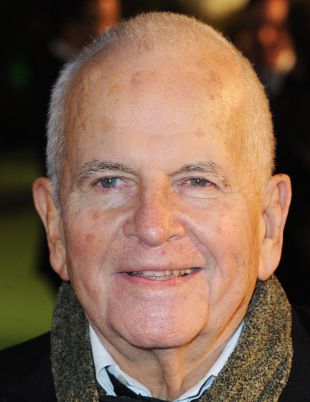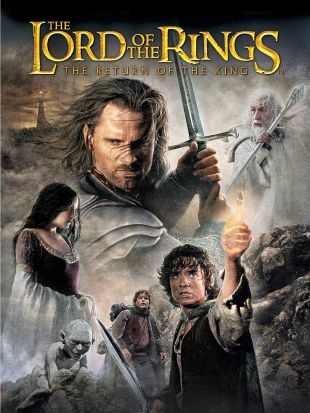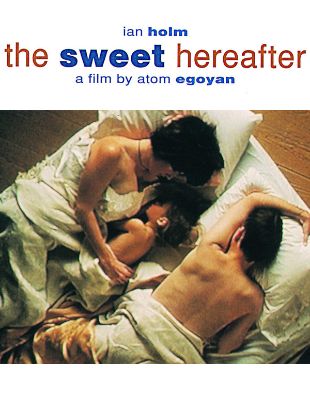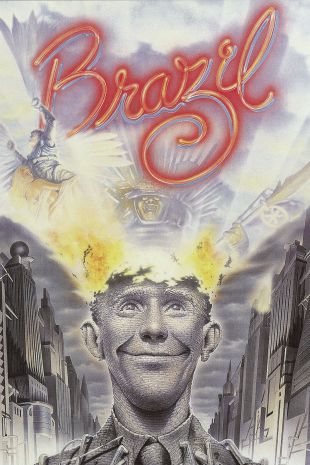Popularly known as "Mr. Ubiquitous" thanks to his versatility as a stage and screen actor, Ian Holm is one of Britain's most acclaimed -- to say nothing of steadily employed -- performers. Although the foundations of his career were built on the stage, he has become an increasingly popular onscreen presence in his later years. Holm earned particular plaudits for his work in Atom Egoyan's The Sweet Hereafter (1997), in which he played an emotionally broken lawyer who comes to a small town that has been devastated by a recent school bus crash.
Born on September 12, 1931, Holm came into the world in a Goodmayes, Ilford, mental asylum, where his father resided as a psychiatrist and superintendent. When he wasn't tending to the insane, Holm's father took him to the theatre, where he was first inspired, at the age of seven, by a production of Les Miserables starring Charles Laughton. The inspiration carried him through his adolescence -- which, by his account, was not a happy one -- and in 1950, Holm enrolled at London's Royal Academy of Dramatic Art. Coincidentally, while a student at RADA, he ended up acting with none other than Laughton himself.
Following a year of national service, Holm joined the Royal Shakespeare Company, making his stage debut as a sword carrier in Othello. In 1956, after two years with the RSC, he debuted on the London stage in a West End production of Love Affair; that same year, he toured Europe with Laurence Olivier's production of Titus Andronicus. Holm subsequently returned to the RSC, where he stayed for the next ten years, winning a number of awards. Among the honors he received were two Evening Standard Actor of the Year Awards for his work in Henry V and The Homecoming; in 1967, he won a Tony Award for his performance in the Broadway production The Homecoming.
The diminutive actor (standing 5'6") made his film debut as Puck in Peter Hall's 1968 adaptation of A Midsummer Night's Dream, a production that Holm himself characterized as "a total disaster." Less disastrous was that same year's The Bofors Gun, a military drama that earned Holm a Best Supporting Actor BAFTA. He went on to appear in a steady stream of British films and television series throughout the '70s, doing memorable work in films ranging from Mary, Queen of Scots (1971) to Alien (1978), the latter of which saw him achieving a measure of celluloid immortality as Ash, the treacherous android. Holm's TV work during the decade included a 1973 production of The Homecoming and a 1978 production of Les Miserables, made a full 40 years after he first saw it staged with Charles Laughton.
Holm began the '80s surrounded by a halo of acclaim garnered for his supporting role as Harold Abrahams' coach in Chariots of Fire (1981). Nominated for a Best Supporting Actor Oscar, he won both a BAFTA and Cannes Festival Award in the same category for his performance. Not content to rest on his laurels, he played Napoleon in Terry Gilliam's surreal Time Bandits that same year; he and Gilliam again collaborated on the 1985 future dystopia masterpiece Brazil. Also in 1985, Holm turned in one of his greatest -- and most overlooked -- performances of the decade as Desmond Cussen, Ruth Ellis' steadfast, unrequited admirer in Dance with a Stranger. He also continued to bring his interpretations of the Bard to the screen, providing Kenneth Branagh's Henry V (1989) with a very sympathetic Fluellen and Franco Zeffirelli's Hamlet (1990) with a resolutely meddlesome Polonius.
The following decade brought with it further acclaim for Holm on both the stage and screen. On the stage -- from which he had been absent since 1976, when he suffered a bout of stage fright -- he won a number of honors, including the 1998 Olivier Award for Best Actor for his eponymous performance in King Lear; he also earned Evening Standard and Critics Circle Awards for his work in the play, as well as an Emmy nomination for its television adaptation. On the screen, Holm was shown to great effect in The Madness of King George (1994), which cast him as the king's unorthodox physician, Atom Egoyan's aforementioned The Sweet Hereafter (1997), and Joe Gould's Secret (1999), in which he starred in the title role of a Greenwich Village eccentric with a surprising secret. In 2000, Holm took on a role of an entirely different sort when he starred as Bilbo Baggins in Peter Jackson's long awaited adaptation of J.R.R. Tolkien's Lord of the Rings. Holm, who was made a Commander of the Order of the British Empire in 1989, was knighted by Queen Elizabeth II in 1998 for his "services to drama."
After the final installment in the Lord of the Rings trilogy was released in 2003, Holm took a role in completely different kind of film. 2004's Garden State was a far cry from the epic, big-budget fantasy he'd just starred in and rather, was a quiet, independent film written, directed, produced by and starring the young Zach Braff. Holm's portrayal of the flawed but well-meaning father a confused adult son was a great success, and he went on to play equally complex and enjoyable supporting roles in a variety of films over the next year, from the Strangers with Candy movie to Lord of War.
In 2006, Holm signed on to lend his voice to the casts of two animated films: the innovative sci-fi noir, Renaissance, and the family feature Ratatouille--slated for release in 2006 and 2007 respectively. He also joined the cast of the controversial drama O Jerusalem, a movie about a friendship between a Jewish and Arab man during the creation of the state of Israel. After five years away from the big screen, he returned to play Bilbo Baggins yet again in Peter Jackson's adaptations of The Hobbit.



